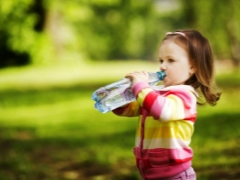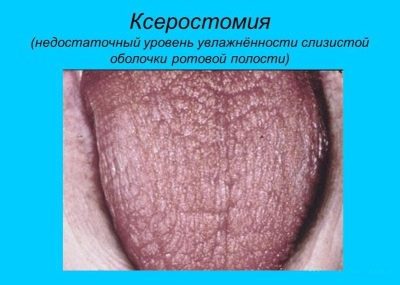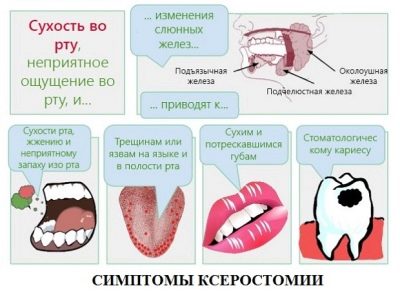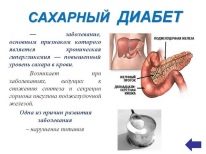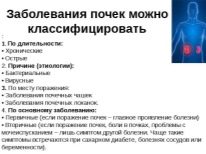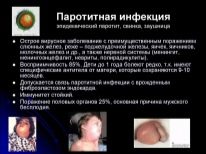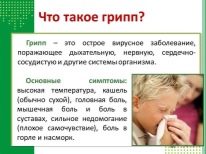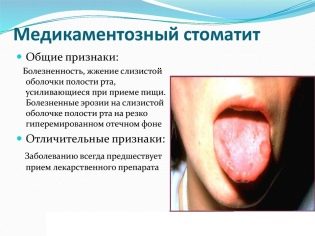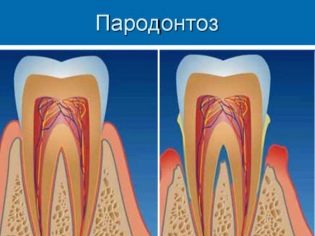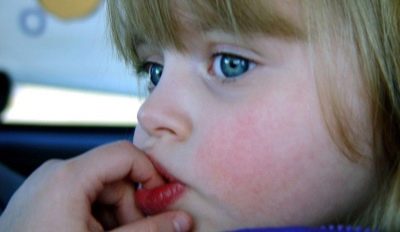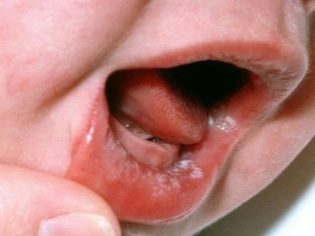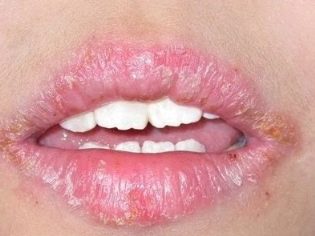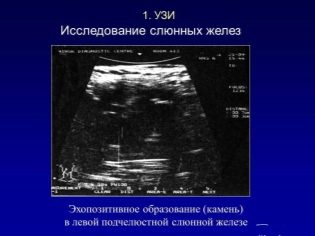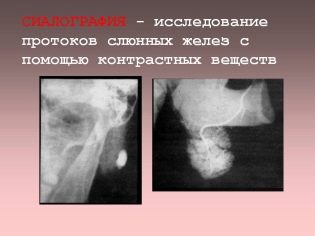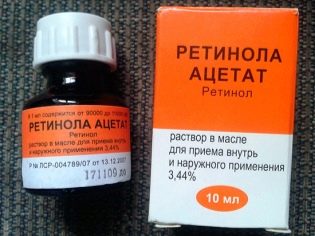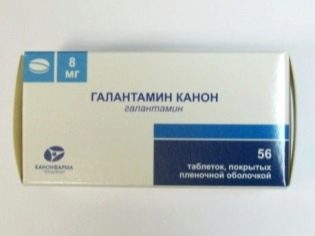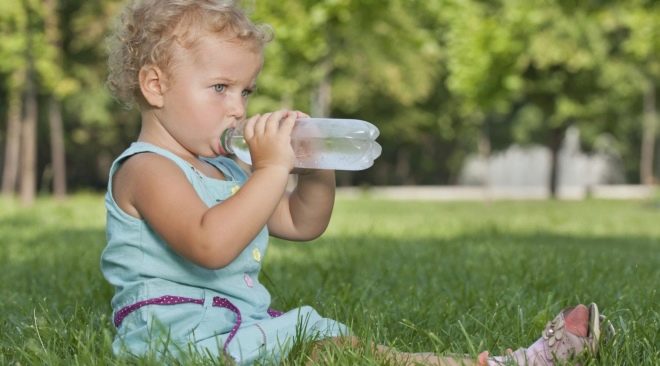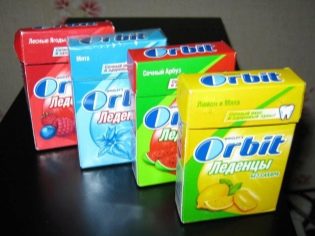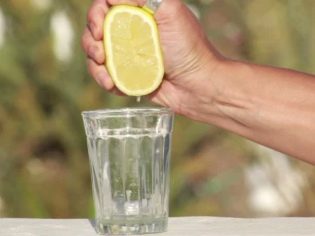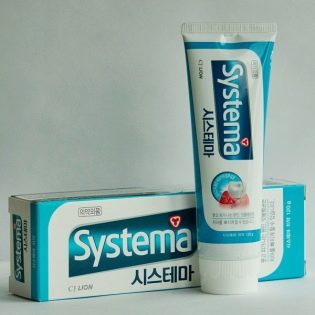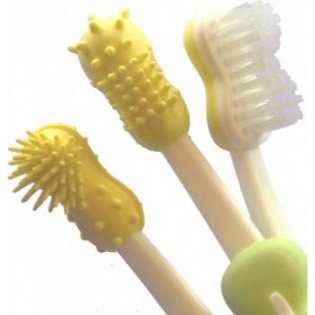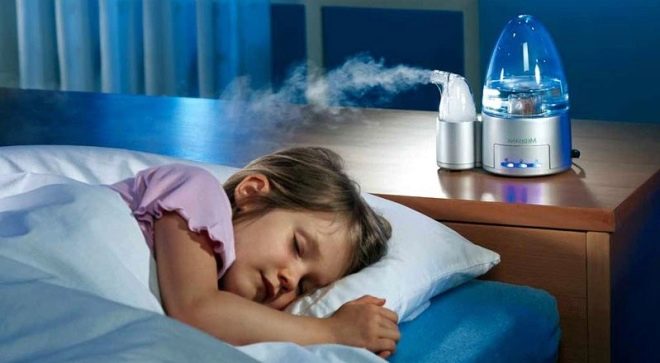What if the child has dry mouth?
Some parents notice that the child began to consume a huge amount of water. The child is tormented by constant thirst, and this can not but cause questions and anxiety in mom and dad. About why dry mouth develops and what to do with it, we will tell in this material.
What it is
The sensation of thirst, dry mouth is familiar to all. In some situations, it is short-lived, transient and easily eliminated if you just give the child a drink. However, the state of prolonged dryness, when thirst cannot be eliminated with water, should alert the parents, since this symptom may indicate a disease.
Insufficient production of saliva, which causes a feeling of "drought" in the mouth, in medicine is called xerostomia. With a small amount of saliva dysfunction of the salivary glands, there is a burning sensation in the region of the tongue, larynx, and the mucous membranes of the oral cavity dry up.
In addition to the unpleasant sensations, the situation also presents a certain danger, because saliva is necessary for the body - this is also provided by nature as an antiseptic for teeth, mouth, and an essential component of normal digestion. Its disadvantage affects and on the state of tooth enamel, and on the work of the gastrointestinal tract.
Therefore, in order to help the child, it is important to find and eliminate the true cause of insufficient activity of the salivary glands, since xerostomia is not considered an independent disease.
The reasons
Very often, dry mouth is a side effect of medication, especially if the child is taking different drugs from different pharmacological groups. Such xerostomia passes itself a day or two after discontinuing the medication.
The list of diseases that may be accompanied by dry mouth, not associated with the medication, big enough:
- diabetes;
- HIV infection;
- anemia due to iron deficiency in the body;
- Stein's syndrome;
- kidney disease;
- thyroid problems;
- "Mumps" (infectious parotitis).
That is why it is important to find the cause and start the appropriate treatment.
Temporary dry mouth can be associated with high fever, for example, in case of any acute respiratory viral infection, flu. “Drought” in the mouth appears after vomiting, repeated diarrhea, in cases of large blood loss, as well as in case of burn disease.
Dry mouth may appear after brain injury. So, with a brain contusion, the salivary glands may not work at full strength due to neurogenic factors. Sometimes in particularly sensitive and vulnerable children dry mouth can be associated with strong emotions. Psychogenic xerostomia can trap a baby in moments of great excitement, fear and even joy.
In adolescents, dry mouth can be associated with hormonal changes that accompany puberty. This is considered a variant of the norm.
Dry mouth, which occurs at night, during sleep, and, as a result, the child's constant waking up to drink, may indicate that he has a runny nose, nasal breathing is difficult, there are problems with the adenoids, the nasal septum is curved, growth begins polyps in the nose or just too dry in the room.
Sometimes excessive care leads to the development of xerostomia, which causes the child to frequently rinse the mouth with various rinses with antimicrobial and refreshing effects during the day. These compounds can cause salivary gland atrophy, and dry tongue is only a small part of possible health problems in this case.
Thus, a prolonged state of dryness in the mouth is a reason for referring to a pediatrician, who will prescribe all the examinations necessary for establishing the diagnosis.
Symptoms
In addition to the sensation of burning and dryness in the oral cavity, which are manifested in the constant requirement to drink, parents may also notice other clinical manifestations of xerostomia:
- change in taste, taste disturbance - a child may be confused bitter and sour, bitter and salty;
- private inflammatory processes in the mouth - from stomatitis to periodontal disease;
- deep grooves on the tongue, frothy saliva.
In fact, the manifestations of the symptom depend on what stage the problem is.
At the very beginning of the pathological process, when some of the salivary glands retain their functions, dryness can be felt only after a long conversation. Normally working glands compensate for the dysfunction of the affected.
At the height of the second stage, there are not enough compensatory mechanisms, which is becoming noticeable. It is difficult for a child to eat, to talk, he asks for water all the time, even when he eats enough moist food.
In the third stage, the feeling of dryness does not leave the child, he, in addition to difficulties with eating and speaking, appears erosion and small ulcers in the mouth. Lips become dry, can often crack. The child begins to have problems with the health of the teeth because of caries, which affects one tooth, then the other, it becomes a frequent guest in the dental office.
Diagnostics
If you find similar symptoms in a child, parents must visit a pediatrician. At the same time, they will have to remember which medicines the baby took in the last 2-3 weeks, whether it fell, or if there were head injuries.
A doctor prescribes dry mouth complaints. Ultrasound of the salivary glands and sialography. In addition, the child takes blood, urine and feces for analysis. Parents also receive a referral to consult a dentist.
Within the framework of the survey, consultations and other doctors may be recommended, because the root of the problem may lie in one of the areas of medicine that he knows. A child can be referred to a gastroenterologist, ENT, nephrologist, neurologist and endocrinologist.
Treatment
Treatment will depend on the reason for the dryness during the examination. To alleviate the condition during the main treatment, which may take quite a long time, the child may be prescribed a subcutaneous injection of the solution. "Galantamine".
Oral cavity dentists often advise lubricate with oily vitamin A, this will contribute to more effective healing of cracks and wounds, since, due to the lack of saliva, the likelihood of infection of such wounds is increased.
In some cases, procaine blockade may be indicated - administration of novocaine to the parotid and submandibular salivary glands.
Good results gives physiotherapy. In particular, electroplating salivary gland, electrophoresis and massage with vibration effects.
Child is shown frequent drinking. Giving should be non-carbonated unsweetened mineral or plain water, make sure that the child consumed her sips, fractionally, but often. You will also have to take a bottle of water with you for a walk, since active outdoor games contribute to drying out of the oral mucosa.
All stages of this unpleasant symptom are amenable to correction, with the exception of situations associated with complete atrophy of the salivary glands, but such situations, fortunately, occur very rarely in childhood.
Useful tips
Doctors recommend:
- To stimulate the salivary glands, you can buy sugar-free lollipops for your child. Sour candies will contribute to the development of saliva. With the same purpose, you can give your child a sugar-free chewing gum if, by age, he can already use it properly, without trying to eat, swallow, or choke.
- You can add a few drops of lemon juice to your drinking water.
- A child with xerostomia should follow a special diet that excludes dry and salty food. Crackers, chips, salted fish and canned food - under the ban. Also avoid large amounts of chocolate and cocoa.
- A toothbrush for a child who often suffers from dry mouth should be chosen correctly. So kiddies fit only brushes with a soft bristle, which will not injure the gums and tongue.
- Toothpastes and rinses are better to choose healing. The line of products for the care of dry oral cavity, in particular, is available from the manufacturer “Lacalut”.
- After treatment, it is important to prevent relapses. Therefore, parents should be very careful about what medicines to give the child. The instructions for use for each medicinal product in the “Side effects” section indicate whether this drug can cause dry mouth. If yes, then it is better to refuse taking the medication, asking the doctor to prescribe an analogue that does not have such a side effect.
- In the room where the child lives, there should always be enough humidified air. It is best to maintain humidity at the level of 50-70%. Measuring it will help home household hygrometer, and maintain at the level of setpoints - a humidifier, which can be bought at any home appliances store or in a specialized store of children's goods.
All about dry mouth and not only look in the next video.
